Published
7 years agoon

The world is at a turning point in the stability of the 21st Century.
Since the 1990s, amid the freedom of the post-Soviet era, there has been a mythos perpetuated in the western liberal countries, and which has dominated the minds of the people. We have heard them: “The end of history,” “Borders will disappear,” and “Military might is no longer necessary.”
A little over 20 years later, in 2016, the British decided to leave the European Union, and the Americans chose President Donald Trump’s “America First” principle. I think these developments are rooted in the idea that, even in the 21st Century, the structure of the international community is still based on nation states. Peace and stability are maintained by a nuclear-deterrent power balance.
US-China Relations as the Center of International Politics
On the other hand, the national capitalism of China’s one-party dictatorship has taken full advantage of globalism. It incorporates foreign investment and state-of-the-art technology to achieve rapid economic growth and become an established military power. Even now, China continues to increase the number of nuclear weapons and missiles it holds, while simultaneously increasing its maritime presence, and even strengthening its offensive capabilities in the fields of space and cyberspace.
The 20th Century “Cold War” otherwise known as the “Cool Peace” spanned half a century, from 1947 to the fall of the Soviet Union in 1991. Initially, the relationship was typified by a cat-and-mouse game, where the Soviet Union took offensive moves to expand its power while US tried to deter them. However, the Cuban Missile Crisis of the 1960s became a turning point, where the Soviet Union could no longer deny the superiority of the nuclear capabilities of the United States. Furthermore, Moscow undertook precautions to avoid accidental collisions with Washington.
Now, if we look at the 21st Century, the major focus of international politics has moved to the Pacific region, and we can see that the US-Soviet relationship has been replaced by a US-China relationship. In this new relationship, the two powers have not yet accepted each other’s status quo as in the case of US-Soviet relationship. In the case of US and China, the two powers have not accepted each other’s status. It looks as though the emerging China is intent on eclipsing the US, rather than just strengthening its military capabilities and expanding the scope of its influence.
Nuclear Deterrence and the Cuban Missile Crisis
The Cuban Missile Crisis in 1962 was the turning point in the Soviet Union’s policy to accept the balance of power with the US. Up until then, the Soviet Union had continued with measures to expand its sphere of influence and alter the status quo. Accordingly, Cuba became a puppet in the hands of the Soviets, and medium range nuclear missiles, with the capability to fire on the United States, were deployed.
If this had come to pass, then the US would have lost its upper hand and the Soviet Union would have set its sights on the next target. When the US undertook a blockade, in accordance with President John Kennedy’s resolve to carry out full-scale nuclear war if necessary, the world froze in fear. Ultimately, Khrushchev yielded at the final stage and the fleet of vessels laden with missiles and nuclear weapons changed its course towards the Atlantic Ocean.
It was a case of Nuclear Deterrence Theory being successfully employed, where only those who had nuclear weapons and were prepared to risk using them could achieve peace without resorting to the use of nuclear weapons.
The China of today is in a similar position as the Soviet Union then, showing resolve to challenge the superiority of the US. North Korea is akin to Cuba in this respect. For the past 20 years, North Korea has continued to develop nuclear weapons and missiles, and repeatedly carried out tests.
America and its allies have joined the international community in condemning these actions. Pressure to halt the development of nuclear weapons has failed, however, and the only possible interpretation is that China is buying time by pretending to convince North Korea, while it continues to provide, economic, technical, and moral support to the rogue state.
For China, North Korea is the spearhead aimed at Japan, South Korea, and the US, just as Cuba was for the Soviet Union in 1962. The Cuban Missile Crisis was directly led by the Soviet Union’s hand, and the crisis was resolved when the Soviets withdrew. However, North Korea has itself, superficially at least, developed missiles and nuclear weapons, and there is the possibility that it will not necessarily listen to China.
North Korea has so far developed a hydrogen bomb, and some analysts are positive that it will gain possession of an Inter-Continental Ballistic Missile (ICBM) technology to transport said bomb within a year. It is fair to say that the world is standing precisely at a deadline to deter nuclear proliferation.
An Effective Resolution Will Lead to Peace
This means the peace and stability of the 21st Century is impossible without putting a stop to North Korea by whatever means. The Trump administration says, “Peace will not be attainable without exercising power,” and to that end, “all options are on the table.” The administration’s announcement that it will not be “drawing a red line” clearly indicates a determination to remove North Korea’s missile and nuclear weapon capabilities by whatever means necessary. From such words it can be perceived that the United States has finally emerged from 20 years of postponing hard decisions, with the resolve to take effective actions.
If this resolution manages to stabilize public opinion in South Korea and restrain the activities of the Russia, as the latent party, eventually it should lead to the suppression of China’s hegemony, and influence over North Korea. After that, just as in the case of the Cuban Missile Crisis, it should bring about long lasting peace.
The assurance that “American is 100% with its allies and committed to protecting them” implies that we must be prepared to state that “Japan is 100% with America and be committed to taking action together.” Reflecting on the history of the modern era, I think that the Japan of today is standing on the precipice of the 3rd turning point after that of the Meiji Revolution and the choice of US-Japan alliance in the US-Soviet Union Cold War.
Yoshiyuki Kasai is the Chairman Emeritus of Central Japan Railway Company (JR Central). He served as the Chairman of JR Central since June 2004 and serves as its Director.
(Click here to read the original article in Japanese)
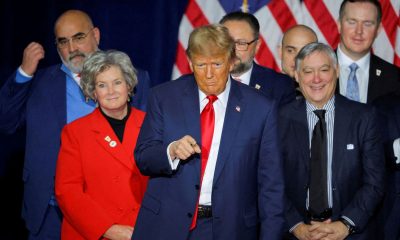

[Speaking Out] Trump Comeback: Why Japan Needs to Be Ready
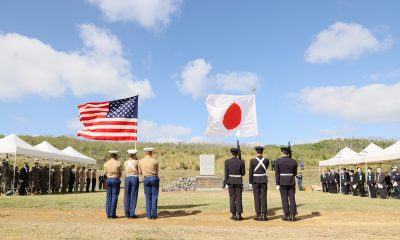

US Military in Japan Fails Children Abandoned by its Servicemen
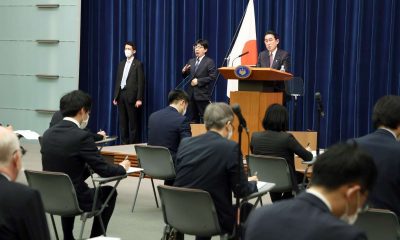

[Speaking Out] Three Security Documents: Clouds Cast Already Over Implementation
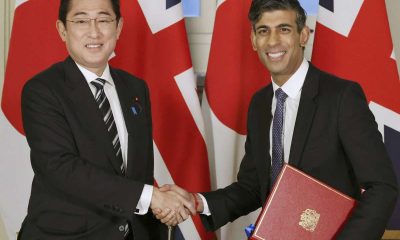

Japan-UK Relations Enter New Phase with Defense Pact
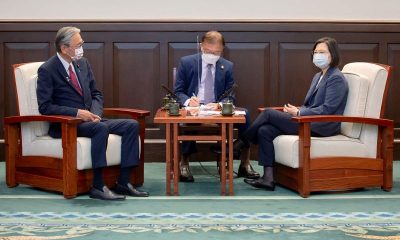

Japanese Lawmakers’ Visit to Taiwan: What Does it Mean?
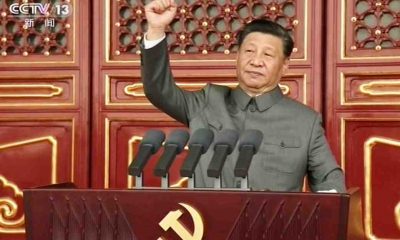

‘Don’t Bow to Nuclear Threats’ Warns Tokyo University Professor

You must be logged in to post a comment Login